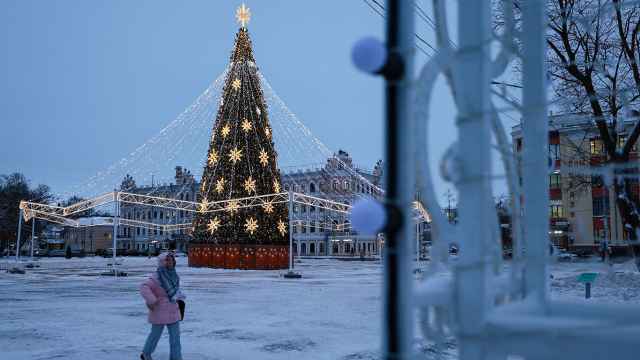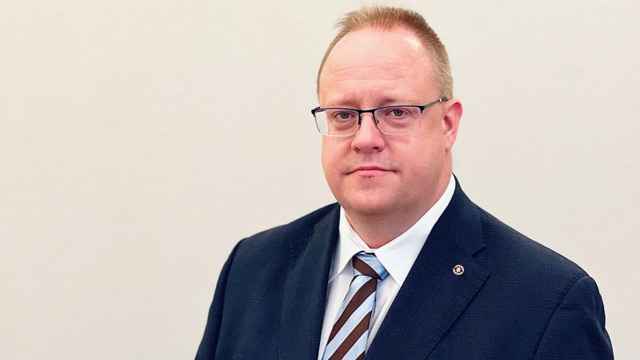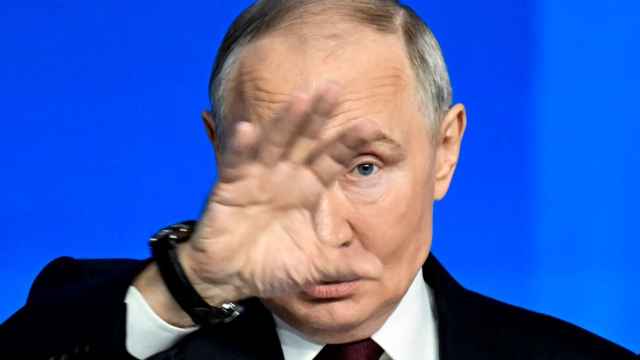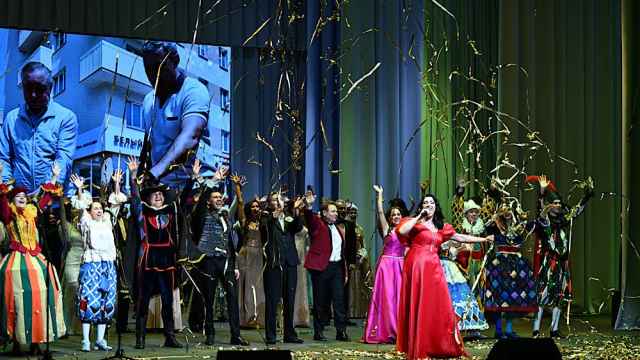With President Vladimir Putin back in the Kremlin and Russia in pursuit of a leading economic role on the world stage, the organizers of the St. Petersburg International Economic Forum are showcasing the country this year through the theme "Leadership That Works."
In the run-up to the forum, The Moscow Times contacted some of the biggest business leaders working in Russia to ask what they think makes leadership work, as well as to hear their insights into where the country's business climate is headed and which areas of the economy or society demand the most urgent improvements.
Jochen Wermuth
 Founding partner, Wermuth Asset Management, which has advised on more than $1 billion of investments in Russia since 1993
Founding partner, Wermuth Asset Management, which has advised on more than $1 billion of investments in Russia since 1993
Q: What makes leadership work?
A: Having shared experiences about what makes good leadership with presidents, CEOs and company founders, as well as NGO and political leaders within the Young Presidents' Organization, the answers seem very clear to me: 1. Lead, do not manage, and 2. Lead by example.
My guess is that most Russians believe senior government officials are only interested in enriching themselves and seek to use their positions in government to achieve this. Because working for personal gain is the example that the country's leadership is perceived to be giving, this is the approach copied at all levels of officialdom, judiciary and business.
Q: Where is Russia's business climate headed?
A: Without a doubt, the biggest issues for the business climate are the lack of an independent judiciary, independent media, political competition, and functioning government services that can be relied on. Whether you are a Russian citizen, a foreigner or a business, you can't be assured of getting a fair court trial. Whether you are a private individual or an investor, it's troubling to think that if ever you need emergency medical support, you might need to "interest" the police or the ambulance driver for assistance. Or you might need to "incentivise" firefighters before the fire truck arrives. And it's disturbing to think that half of the medicine in the drugstore might be falsified. These are examples of the numerous day-to-day issues that stand in the way of real progress. The big picture in the case of Russian investment is clear and compelling; it's these "micro" issues that need to be addressed by leadership through example and proper incentives.
Q: What area would you most like to see improvement in, and how would you recommend improving it?
A: Even though I get chastised for saying this, I believe that there was a case for supporting President Vladimir Putin for rolling back democracy a bit in the 2000s to rein in the free-wheeling oligarchs who controlled local economies and elections and then abused the power of the state to further enrich themselves. But the problem is that in the absence of checks and balances, some people in or near power appear to have developed a taste for living off economic rent themselves. If Putin called in the bureaucrats as he called in the oligarchs and led by example, submitting the country and himself to independent courts, Russia could boom.
With the Kremlin promising to clamp down on corruption and allow more political competition, it should:
1. Accept an outside international court as the highest legal authority for all cases in Russia (just as the high court in London is the highest court for Singapore and Brussels is the highest court for any EU commercial dispute);
2. Re-introduce the election of mayors, governors and local parliaments without restrictions or unfair access to media and administrative resources.
3. Make any undeclared income above $50 a bribe that is subject to criminal punishment, increase the penalty for petty bribery and large white-collar corruption to up to 20 years in prison, and call for a date from which everyone will be asked to live by these new rules. People who fail to adhere to the rules should be locked in prison to prevent them from abusing the new system to further enrich themselves.
A Message from The Moscow Times:
Dear readers,
We are facing unprecedented challenges. Russia's Prosecutor General's Office has designated The Moscow Times as an "undesirable" organization, criminalizing our work and putting our staff at risk of prosecution. This follows our earlier unjust labeling as a "foreign agent."
These actions are direct attempts to silence independent journalism in Russia. The authorities claim our work "discredits the decisions of the Russian leadership." We see things differently: we strive to provide accurate, unbiased reporting on Russia.
We, the journalists of The Moscow Times, refuse to be silenced. But to continue our work, we need your help.
Your support, no matter how small, makes a world of difference. If you can, please support us monthly starting from just $2. It's quick to set up, and every contribution makes a significant impact.
By supporting The Moscow Times, you're defending open, independent journalism in the face of repression. Thank you for standing with us.
Remind me later.





